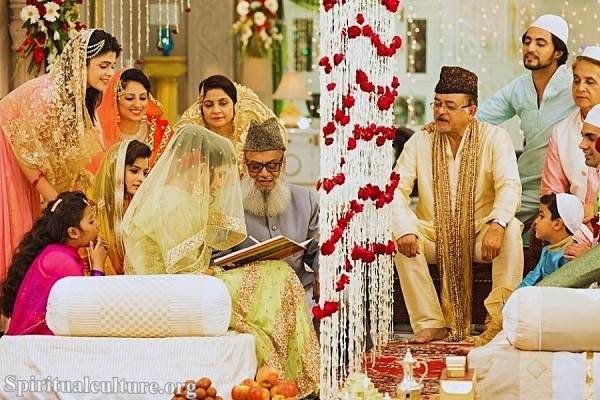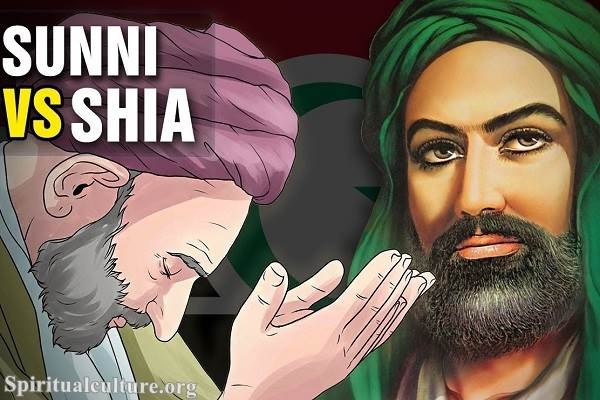A Muslim wedding ceremony is a sacred union between a man and a woman in the presence of Allah. The couple is united through a contract, known as the nikah, which is performed by a religious authority, typically an imam. The ceremony typically starts with the bride and groom separately meeting with the imam to make their intentions to marry clear and to sign the marriage contract.
During the ceremony, the bride and groom stand together facing the imam, who recites verses from the Quran and offers prayers for the couple. The couple then exchange vows, usually in the form of the groom saying “I accept” and the bride saying “I accept,” or similar declarations. Rings are also exchanged between the bride and groom as a symbol of their commitment to each other.

Once the vows and ring exchange have taken place, the imam declares the couple married and the couple signs the marriage contract in the presence of two witnesses. The contract details the terms of the marriage, including the duties and responsibilities of each spouse.
After the ceremony, the couple and their guests may participate in a reception, which may include feasting, gift-giving, and celebration. The wedding is considered a joyful and important event in the lives of the couple and their families and is typically marked by close friends and family members.
The wedding ceremony is an important moment in a Muslim couple’s life, symbolizing their commitment to each other and to their faith. It is also an opportunity for friends and family to come together and celebrate the couple’s union.
In many Muslim communities, there are traditional customs and rituals that are followed during the wedding ceremony, such as the giving of a dowry by the groom to the bride, or the bride’s family presenting the groom with a gift. These customs vary by region and culture and may also be influenced by personal preference.
The wedding ceremony is just the start of a Muslim couple’s journey together. Islamic teachings emphasize the importance of treating one’s spouse with kindness, respect, and fairness, and of working together to build a strong and loving marriage.
It’s worth noting that Muslim weddings can also be influenced by cultural traditions, with different communities having their own unique practices and customs. However, the religious aspects of the wedding ceremony remain the same, with the emphasis on the couple’s commitment to each other and to their faith.


